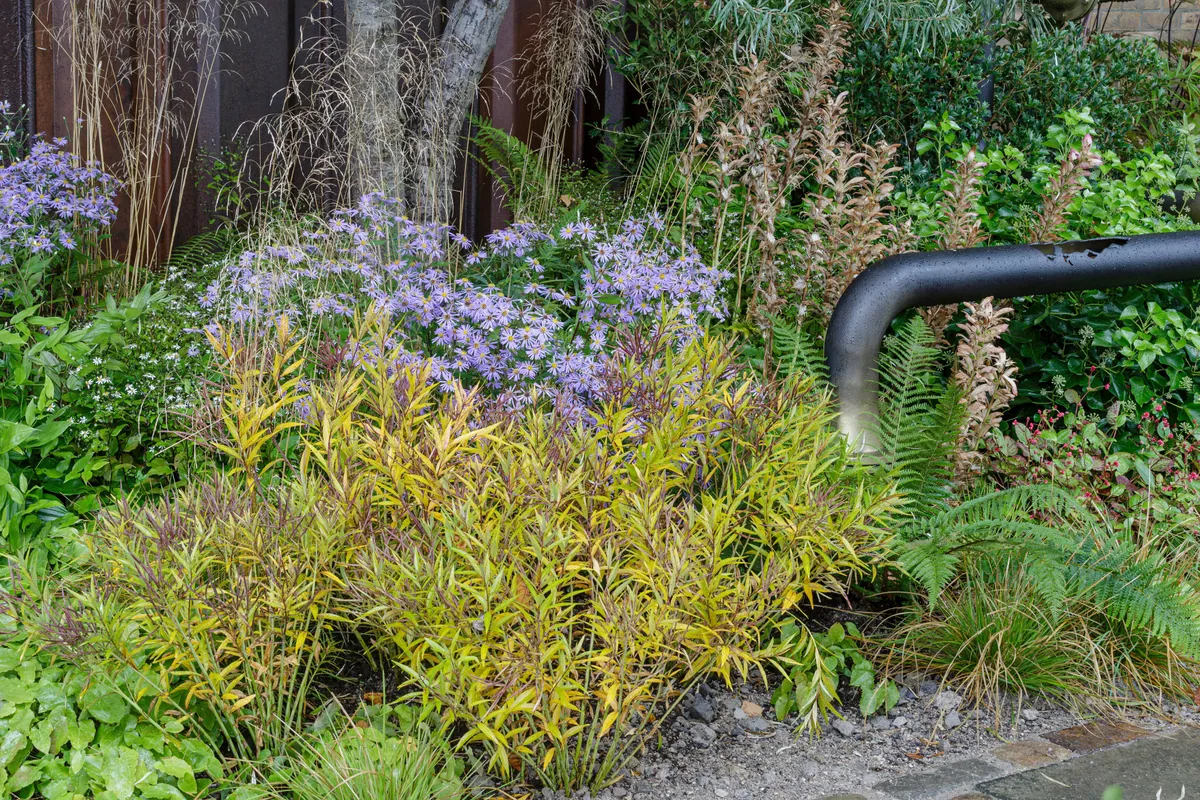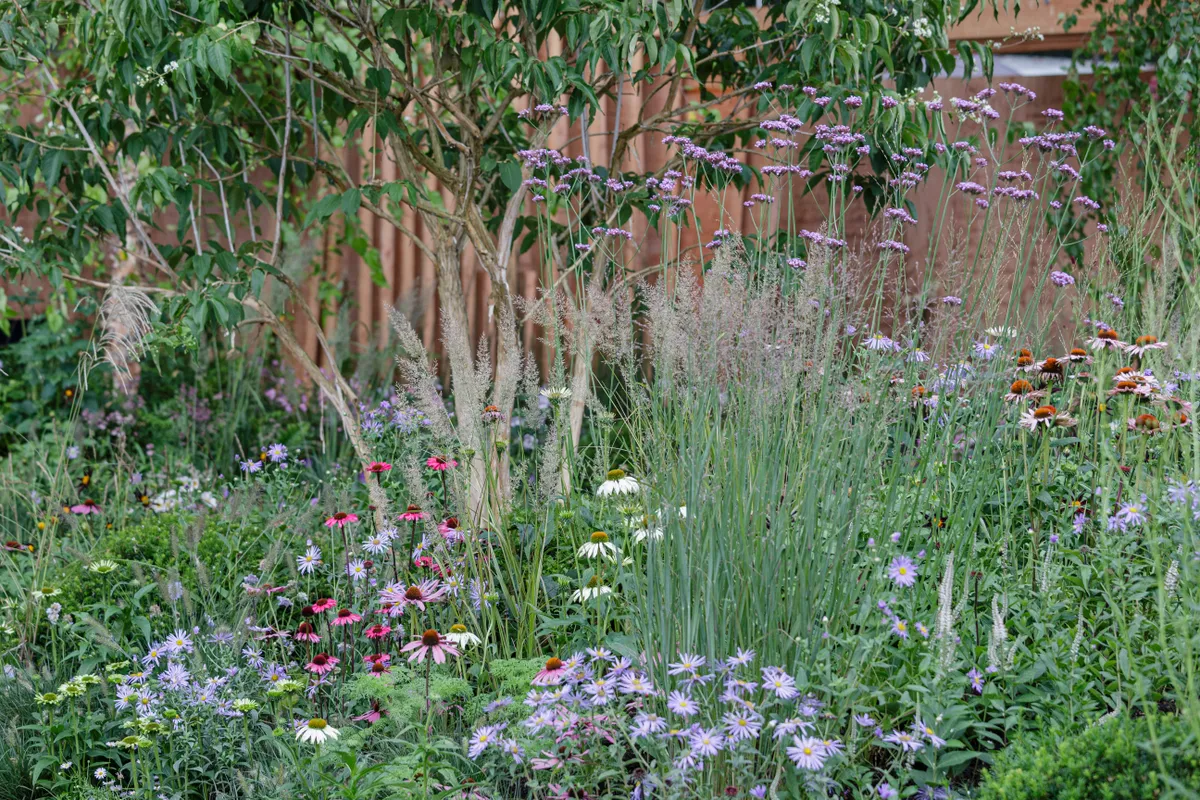For anyone interested in “nature-inspired planting”, to coin a phrase from Piet Oudolf, last year’s RHS Chelsea Flower Show, held in September, was a heartening event. Yes, the absence of rose, iris and peony growers was felt in the Great Pavilion, and many show garden designers had to change their planting when the dates were moved, but the winners were those who took the longer view, retaining much of their plant palette and showing plants as they grow in real time. The final garden to be financed by long-term show sponsors M&G Investments, designed by Harris Bugg Studio, also took a realistic situation: not a portfolio garden for a fantasy client but a pocket park, also known as a stalled space, or community garden. It showcased unlikely pieces of industrial reclamation, as well as plants that were gently “senescing” at the end of a long season.

The sponsors’ reaction to Harris Bugg’s use of metal sidings as a backdrop to the gold medal-winning garden has not been recorded but it is arguable that Chelsea’s corporate element was becoming increasingly anomalous, at least in concept, with the holistic direction that is being taken by garden designers and thinkers. In addition, that too much branding has muddied the Royal Horticultural Society’s own messaging. The flower shows put on by the RHS are the prime fund-raisers for the charity and it is natural that it should want to remind the paying public about what it stands for (with calls to action such as ‘Greening Grey Britain’). Sometimes this has felt like one slogan too many so it was a relief, to this writer at least, that last September’s focus on wellbeing felt as one with the preoccupations of the gardens themselves.
Dr Alistair Griffiths, the Royal Horticultural Society’s Director of Science and Collections, uses the image of a fractal leaf to describe the interconnected benefits of gardening for personal wellbeing and for that of the environment. Gardens are not isolated islands, like the show gardens of old, and yet for many people tuning into the Chelsea Flower Show on TV or visiting in person, the idea of using synthetic grass and slug pellets still seems like a reasonable thing to do. Garden designers’ clients who are asking for a more naturalistic feel are reportedly growing in numbers, but designers are hired by a tiny proportion of the garden-owning public. So how to get the message across?
Fortunately, encouraging ideas such as nature-related finance and eco entrepreneurialism are seeping into the national conversation and, this year, into the Chelsea Flower Show. New show sponsors the Newt in Somerset will be keen to consolidate the theme of this year’s show, ‘Wild’. Another exciting development is the arrival of Project Giving Back, founded by a pair of anonymous altruists, who will be sponsoring 42 gardens over the next three years. They have taken the pragmatic view that the huge volume of media coverage generated by Chelsea could be put to better use if sponsorship took a backseat to the garden’s cause. In other words, this year’s show garden designed by Lulu Urquhart and Adam Hunt, ‘A Rewilding Britain Landscape’ could not be more clear in its aims; ditto the ‘Wilderness Foundation UK Garden’, designed by Charlie Hawkes. Further gardens address other causes, often linking back to mental health. It is a form of grant-giving that puts the spotlight on the charities, while removing the financial stress (a large show garden costs upwards of £350,000).

In this sense, Project Giving Back’s messaging potential is stronger than that of the RHS, in that sponsorship is tied to certain conditions around sustainability. In the past it was strongly hoped that a garden would not be broken up and dispersed afterwards but this was not guaranteed. Now, a show garden’s legacy is an important vein in the fractal leaf of communication and exponential benefit. As PGB’s Project Director Hattie Ghaui explains: “Once a garden has been at Chelsea and has caught the attention of many, many new audiences, it will be relocated to benefit a community in the longer term.”